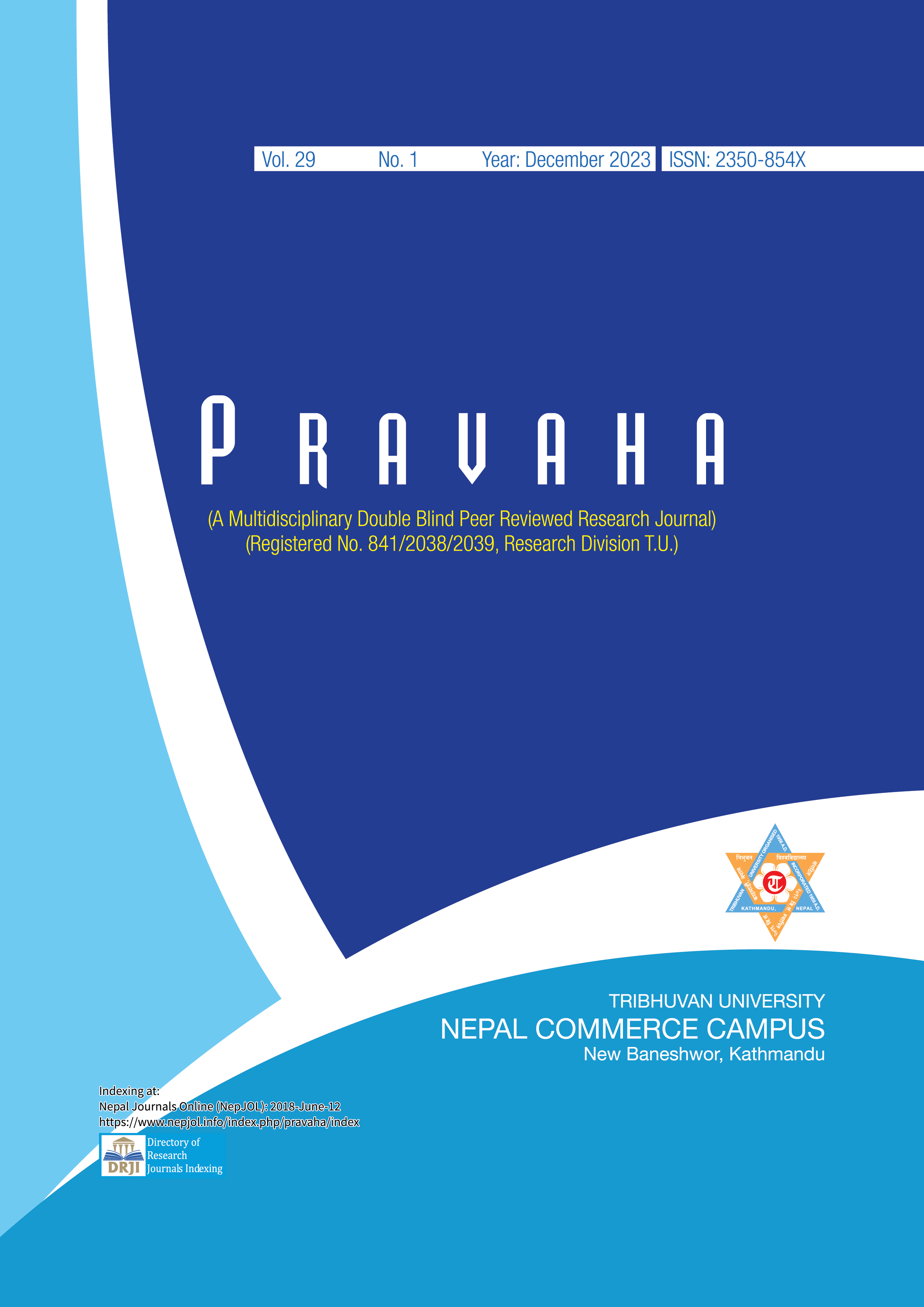Attitude formation towards digital payment system: A case study of eSewa mobile application
DOI:
https://doi.org/10.3126/pravaha.v29i1.71414Keywords:
digital payments, mobile technologies, eSewa, online payments, consumer attitudesAbstract
Mobile technologies have rapidly gained widespread adoption and provide significant advantages for businesses, including the ability to reach customers more effectively. These technologies offer numerous benefits, such as the ability to interact from virtually anywhere, individualized usage, personalized information and services, and prompt responses. The advancement of mobile technology has facilitated the transition from traditional to digital payment systems. For example, in Nepal, the mobile payment system "eSewa" was introduced by eSewa Fonepay in 2009. Recent years have seen a dramatic rise in e-commerce, largely driven by the pervasive use of mobile devices. This surge in online trading has led to the development of new products and solutions for online payments, influencing consumer attitudes and behaviors. An online survey of 165 individuals was done for the study. Correlation and regression analysis were performed in SPSS was used for the data analysis. The study identified several factors influencing adoption: perceived reputation, perceived trust, environmental risk, perceived ease of use, perceived usefulness, and perceived mobility. Findings revealed that perceived reputation, perceived ease of use, and perceived usefulness positively affect attitudes towards digital payments. Notably, perceived usefulness had the greatest impact on fostering a positive attitude, while perceived trust, environmental risk, and perceived mobility did not show significant effects.
Downloads
Downloads
Published
How to Cite
Issue
Section
License
© Nepal Commerce Campus, TU
Authors are required to transfer their copyright to the Nepal Commerce Campus, TU.




